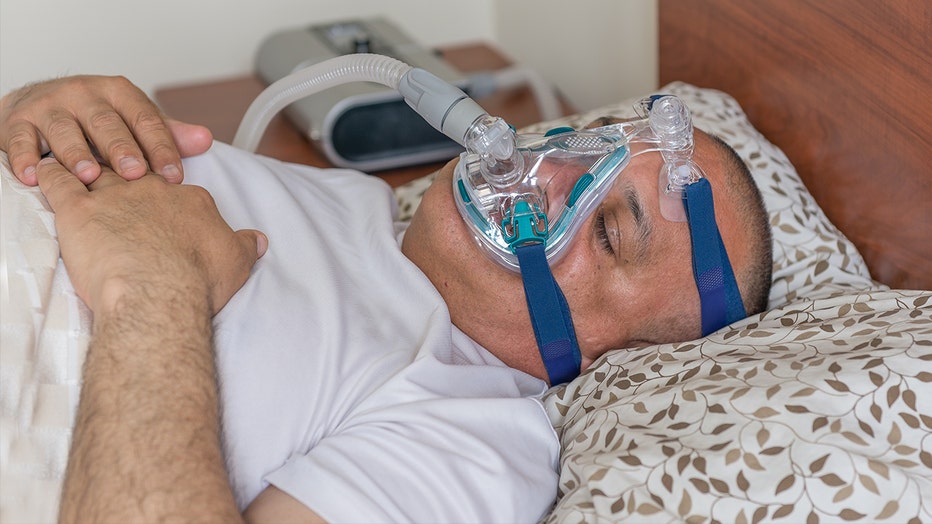Reducing tongue fat via weight loss may be an effective sleep apnea treatment, study suggests
PHILADELPHIA - Losing weight with a focus on reducing tongue fat could be an effective treatment for sleep apnea patients with obesity.
For individuals with obesity with a diagnosis of obstructive sleep apnea, weight loss was found to reduce the volumes of several upper airway (UA) soft tissues, which led to a reduction in symptoms, according to a study published Friday in the American Journal of Respiratory and Critical Care Medicine.
Obstructive sleep apnea (OSA) occurs when the upper airway becomes blocked repeatedly during sleep, reducing or stopping airflow. The condition is a major public health burden affecting more than 25 million Americans.
Patients with sleep apnea have an increased risk of high blood pressure, heart disease, Type 2 diabetes, stroke and depression.
One of the primary risk factors of sleep apnea is obesity. As the weight of the average American individual has steadily gone up in recent years, so has incidence rate of OSA cases.
Prior research has shown that weight loss can improve OSA symptoms in obese patients, though the underlying cause was unknown.
The most recent study examined the link between weight loss and improved OSA symptoms to find the mechanism responsible for this relationship.
A 2014 study found that sleep apnea patients with obesity have significantly larger quantities of tongue fat than patients with obesity without sleep apnea.

A sleep apnea patient undergoes CPAP treatment. Sleep apnea is a type of sleep disorder characterized by pauses in breathing or instances of shallow or infrequent breathing during sleep. A new study suggests is related to high percentages of tongue f (Machado Noa/LightRocket via Getty Images)
Researchers in the current study hypothesized that weight loss would decrease upper airway soft tissue volumes and tongue fat, and that this would correlate with reductions in sleep apnea symptoms.
To test their theory, they analyzed 67 individuals with obesity who also held OSA diagnoses. The OSA patients participated in a sleep study and also underwent upper airway and abdominal magnetic resonance imaging (MRI) before and after weight loss. Each patient either underwent intensive lifestyle modification or bariartric surgery.
Each participant’s airway size and soft tissue volume, tongue fat volume and abdominal fat volumes were measured and quantified before and after weight loss to determine how changes in these structures affected sleep apnea symptoms.
Researchers found a significant association between weight loss and reductions in tongue fat, and reductions in tongue fat were strongly correlated with reduction in sleep apnea symptoms.
Previously published research in the American Journal of Epidemiology shows that the estimated prevalence rates of OSA have increased substantially over the last two decades, which coincides with the obesity epidemic.
The study’s authors advocate for the development of new treatments for sleep apnea that are focused around weight loss and reduction of tongue fat for patients suffering from OSA.
This story was reported from Los Angeles.

